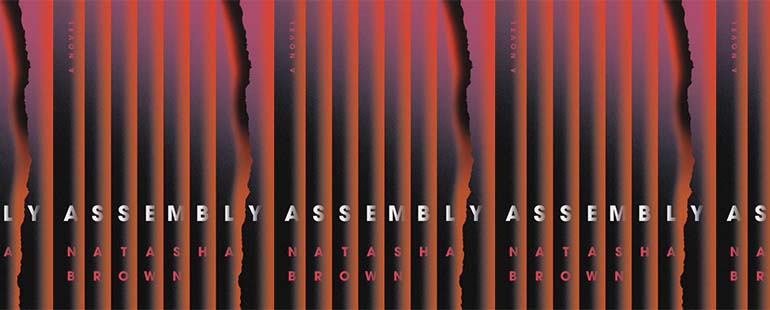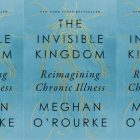Capitalism, Racism, and Misogyny in Natasha Brown’s Assembly

In his bestselling book, How to Be an Antiracist (2019), Ibram X. Kendi writes about what he terms the “conjoined twins” of racism and capitalism. “The origins of racism cannot be separated from the origins of capitalism,” he says. “The life of capitalism cannot be separated from the life of racism.” Capitalism emerged alongside the growth of the transatlantic slave trade and thrived during colonialism, and the two institutions have grown together and solidified over the last four hundred years.
I agree with Kendi. I’d arrived at a similar conclusion years ago, around the time I stopped identifying as a Libertarian, started to see the lies upholding many of my beliefs about the free market, and realized that subjugation and exploitation undergird capitalism as much as racism. But I would add a third component to Kendi’s twins, as I see instead a tripartite monster of three equal faces: capitalism, racism, and misogyny. Living inside a capitalist system that thrives off of “global theft, racially uneven playing fields, and unidirectional wealth that rushes upward,” women have been and continue to be exploited, often providing free or cheap labor, working in sexually violent conditions, and working without many of the basic rights afforded to men. None of this is news, especially if you are a woman who has ever held a job. But rarely have I seen a novel address these three evils so powerfully and so head-on as Natasha Brown has in her debut novel, Assembly, released in the UK in June and in the US this fall.
Assembly is a disarmingly short book, much like Citizen: An American Lyric by Claudia Rankine, which Brown cites at the end of her novel as an influence. But Assembly’s brevity only attests to Brown’s copious talent, as she says in about a hundred pages what most writers couldn’t say in a thousand.
Her unnamed narrator is a Black woman living in London and working for a financial firm. She is highly paid. She visits elementary schools and gives motivational speeches to young girls where she extols the benefits of hard work and sacrifice. She has a politician boyfriend from an old-money family. She is successful in all outward appearances, the kind of daughter any parent would kvell about. But her successes are only appearance. At her job she is sexually harassed and subject to constant racist and sexist attacks. She feels like a fraud encouraging children to believe her canned presentations about success and personal fulfillment. She doesn’t love her boyfriend and suspects that he is dating her to create a public image of a woke liberal. Every appurtenance of her life leaves her feeling empty, and she struggles to see herself in the life she’s created, and to even find the will to keep on living a life of such oppressive falseness, a life that is actually predicated on her suppressing or erasing herself. She is an assembly of masks, gestures, and small deaths, which she must die every day in order to survive the world as a Black woman.
But rather than turn Assembly into an Existentialist meditation on a lassitude she cannot name, Brown is sharply aware of where her narrator’s problems originate: our three-faced monster of capitalism, racism, and misogyny. Her opening chapters work in vignettes as she tells of an ambush at a sushi dinner with her all-men, all-white colleagues when an older co-worker puts down his fork and decides to talk straight. “He knows she’s not one to take advantage of it. He knows that, he knows. There, he paused for effect and to savour the thrill of telling the girl how things were. But she must admit, she had an advantage over him and the others at the table. She could admit that, couldn’t she.” Buttoning her shirt in the morning after this newest “breezy brutality” she tells herself, It was nothing. She says it again and again. It was nothing. And yet, even in the first few pages, there are so many ways in which she is attacked—aside from the abuse at dinner she is sexually harassed and intimidated by her boss, and she is told repeatedly how the world works for Black people, as though she cannot fathom this for herself—that when she says, It was nothing, we know “It” contains multitudes.
Of course, the things happening to her are not nothing, and the narrator becomes increasingly frantic and despondent in her inner monologue. She speaks frequently of alienation, feeling disconnected from herself, and how she enacts this alienation out of necessity in such a hostile world. “I try to consider events as if they’re happening to someone else… There’s the thinking, rationalizing I (me). And the doing, the experiencing her . . . To protect myself, I detach.” Later on, she speaks of assimilation, how this is always demanded implicitly and explicitly of anyone who is “other” as the only way into the good graces of the society. But assimilation similarly mandates protection, detachment, and the othering of the self in order to conform. “Dissolve yourself into the melting pot. And then flow out, pour into the mould. Bend your bones until they splinter and crack and you fit . . . And always there, quiet, beneath the urging language of tolerance and cohesion— disappear! Melt into London’s multicultural soup.” Racism and misogyny have conspired together to reduce the narrator to a fractured and anonymous body, and capitalism dictates that she put her head down and submit or else starve, while at the same time evangelizing the benefits of hard work to a new generation of young girls, recruiting them into the same machine that will eventually grind them down, too.
Erasing herself has become such a necessity for the narrator that later when she is given a bad medical diagnosis and she must choose whether to begin treatment, she considers that she has already ceased to exist, that the concept of her has such little significance that whether she continues in her corporeal form is frankly irrelevant. It’s a line of thinking that is tragic but anticipated. The narrator’s best friend, Rach, provides a bleak counterpoint to the narrator’s inner monologue, as she has internalized and accepted the perverse system in which she operates, and even finds a cynical pleasure in working within it. “‘Fuck the sexism—harness it,’” she says. And a few paragraphs later: “‘Victimhood is a choice.’ Part opinion, part mantra.” If the narrator’s choices are to continue suffering in silence or follow her friend’s cutthroat approach, it is unsurprising that the narrator might choose to give herself over to her disease.
Search for “internalized capitalism” and “grind culture” and the top results are all articles on how both are detrimental to mental and physical health, how linking personal identity to material success and productivity can have disastrous effects. Dread is the word Brown uses. “Dread. Every day is an opportunity to fuck up. Every decision, every meeting, every report. There is no success, only the temporary aversion of failure. Dread. From the buzz and jingle of my alarm until I finally get back to sleep. Dread.” Her repetition of the word creates a palpable reaction in my stomach, an automatic clenching of the guts and a cold, silvery pain washing through my blood.
Assembly is a slow-motion tragedy, all the weight of four hundred years coming to bear on one woman and the heartbreaking clarity with which she narrates exactly what that feels like. It is a story of failure inside success, slipping and falling even while continuing to ascend, and all the ways capitalism, racism, and misogyny inflict violence on the self. In her blurb for the novel, Diana Evans writes, “I take hope from Assembly, not just for our literature but also for our slow awakening.” And it is this that I will cling to as well, that by naming the monster and speaking its many crimes, we may begin to awaken and heal and no longer sacrifice ourselves at its altar.
This piece was originally published on December 9, 2021.



